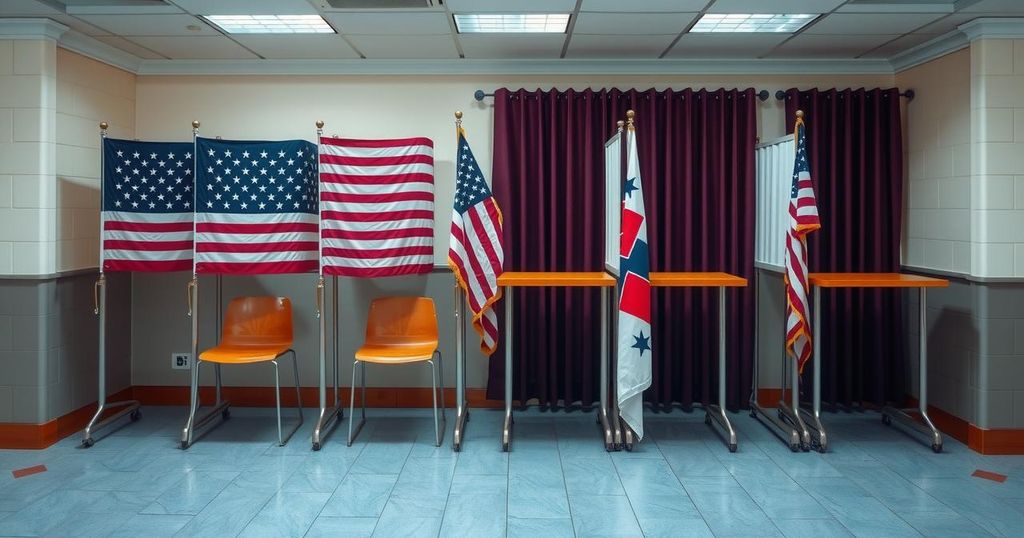Chad Conducts General Election Amid Low Turnout and Opposition Boycott

Chad conducted a general election amidst military rule with expected low turnout due to an opposition-led boycott. Preliminary figures showed a mere 38 percent participation. Opposition leaders criticized the legitimacy of the elections, claiming results were pre-determined, while the president urged citizens to vote. The election takes place in a context of economic struggles and security challenges, raising questions about the transition to democracy.
Chad held a general election on Sunday, seen by the government as a crucial step toward the restoration of civilian rule following three years of military governance. However, voter turnout was reported to be low, with preliminary figures indicating only 38 percent participation, largely attributed to a boycott urged by opposition parties who alleged predetermined results. The president’s affiliates were expected to dominate the elections, as opposition leaders remained skeptical about the integrity of the process.
President Mahamat Idriss Deby Itno, who ascended to power after military intervention in 2021, encouraged participation through social media, deeming the day historic. Nevertheless, opposition leader Succes Masra declared that the majority of voters had indeed heeded the call for a boycott, thereby dismissing the legitimacy of potential outcomes. Amidst economic struggles and repeated calls for change from the populace, many citizens expressed a profound disinterest in voting, perceiving it as futile given the current political climate.
While military personnel and nomads cast their votes earlier, highlighting discrepancies in turnout claims, opposition parties reported irregularities, including the disappearance of ballots. Despite assurances from the election management agency citing higher involvement rates among armed forces and nomadic communities, the elections occur within a milieu of security challenges due to jihadist activities and growing tension in regional conflicts. The government insists these elections mark the final phase in Chad’s transition to democracy, a narrative met with skepticism from opposition figures and constituents alike.
Chad has been under military rule since April 2021, following the death of long-time President Idriss Deby. His son, Mahamat Idriss Deby, assumed power and has faced substantial criticism over the conduct of elections and the overall political landscape. The current general election is positioned as a pivotal moment in restoring democratic governance. However, opposition factions have mobilized against the vote, promoting a boycott while alleging that the ruling party orchestrated the elections unfairly, thus casting doubt on the transition process. The context is further complicated by economic constraints, insecurity due to militant attacks, and ongoing regional conflicts, all contributing to widespread public disillusionment.
In summary, Chad’s recent general election reflects both the government’s attempts to transition back to democracy and the palpable disinterest from a significant portion of the electorate. Despite presidential calls for participation, opposition leaders maintained that voter apathy was a natural response to a perceived lack of integrity in the electoral process. The ongoing challenges, from economic hardships to security threats, complicate the nation’s path forward, leaving numerous citizens skeptical about the potential for genuine political change.
Original Source: www.khq.com






